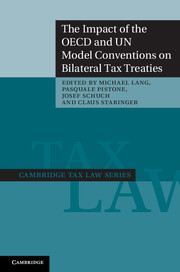Book contents
- Frontmatter
- Contents
- Contributors
- Preface
- Table of cases
- Table of statutes
- General report
- 1 Argentina
- 2 Australia
- 3 Austria
- 4 Belgium
- 5 Brazil
- 6 Canada
- 7 Chile
- 8 China
- 9 Colombia
- 10 Croatia
- 11 The Czech Republic
- 12 Estonia
- 13 Finland
- 14 France
- 15 Germany
- 16 Hong Kong
- 17 Hungary
- 18 India
- 19 Italy
- 20 Lebanon
- 21 Liechtenstein
- 22 The Netherlands
- 23 New Zealand
- 24 Norway
- 25 Peru
- 26 Poland
- 27 Portugal
- 28 Romania
- 29 The Russian Federation
- 30 Serbia
- 31 Slovakia
- 32 Slovenia
- 33 Spain
- 34 Sweden
- 35 Uganda
- 36 The UK
- 37 The USA
- Index
- References
General report
Published online by Cambridge University Press: 05 November 2014
- Frontmatter
- Contents
- Contributors
- Preface
- Table of cases
- Table of statutes
- General report
- 1 Argentina
- 2 Australia
- 3 Austria
- 4 Belgium
- 5 Brazil
- 6 Canada
- 7 Chile
- 8 China
- 9 Colombia
- 10 Croatia
- 11 The Czech Republic
- 12 Estonia
- 13 Finland
- 14 France
- 15 Germany
- 16 Hong Kong
- 17 Hungary
- 18 India
- 19 Italy
- 20 Lebanon
- 21 Liechtenstein
- 22 The Netherlands
- 23 New Zealand
- 24 Norway
- 25 Peru
- 26 Poland
- 27 Portugal
- 28 Romania
- 29 The Russian Federation
- 30 Serbia
- 31 Slovakia
- 32 Slovenia
- 33 Spain
- 34 Sweden
- 35 Uganda
- 36 The UK
- 37 The USA
- Index
- References
Summary
Introduction
Tax treaties have developed considerably throughout the twentieth century, based on the assumption that states need an agreed legal instrument to coordinate the exercise of taxing powers and thus minimize overlaps and the negative influence of taxation on cross-border economic activities. In particular, the impetus for international tax coordination grew steadily in the second half of the twentieth century under the auspices of international organizations, such as, in particular, the OECD and the UN. The OECD and the UN continued the technical activity undertaken in the framework of the League of Nations and drafted their Model Tax Conventions, which are currently the main source of tax treaty clauses around the world. Such Models are the outcome of technical activities carried out in working parties, which include representatives from the tax authorities and from business, and are usually regarded as the set of tax treaty rules that most consistently reflects the international tax policy of the member countries. Accordingly, the Models are generally regarded as the best available tax treaty practice. This reputation has enhanced their implementation in bilateral tax treaties over the past decades, showing that international tax law in fact shares a common substance to a much greater extent than it may appear in the absence of a proper international customary tax law. This structural peculiarity makes such Model Tax Conventions the soft source of international tax rules, which then find their normative dimension in the bilateral tax treaties that include them.
Over the past decades this structural peculiarity has gradually expanded to a global dimension. The era of global law and worldwide free trade with decreasing tax barriers for cross-border activities makes states very concerned about the need to have a global tax system which is able to compete with best practices and offers an attractive legal environment to internationally mobile capital. This is even more the case since harmful tax regimes started being dismantled and global fiscal transparency picked up.
- Type
- Chapter
- Information
- Publisher: Cambridge University PressPrint publication year: 2012
References
- 9
- Cited by



